As cities, states, countries, and territories around the world begin the process of reopening the economy in stages — and eventually open borders which have been closed — the media is awash with advertising which is designed to comfort its audiences and target markets with nomenclature that we are all in the same situation…
12 Overused Terms of the 2019 Novel Coronavirus Era
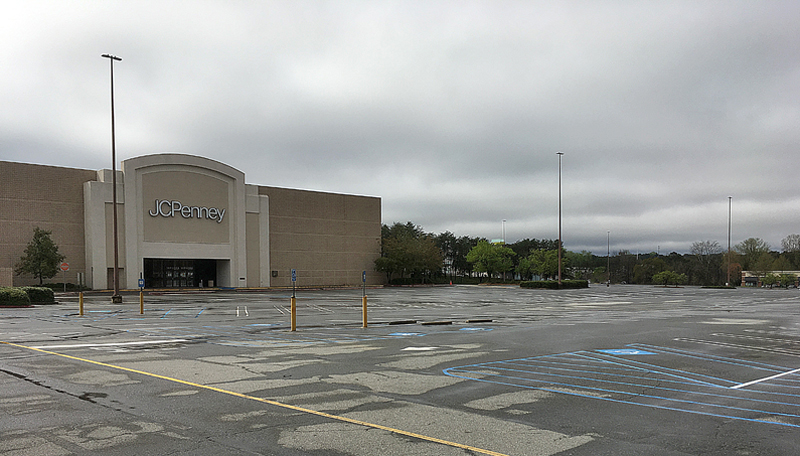
…but in the era of the current 2019 Novel Coronavirus pandemic — in which millions of people have either isolated themselves or are under mandatory quarantine — feathers are apt to eventually get ruffled and the wrong raccoon may become rankled.
In other words, people in general have become more easily irritated and ruder to others by the restriction of freedom, the fear of the unknown pertaining to the 2019 Novel Coronavirus, and the onslaught of “cabin fever” — all of which is understandable — especially given that the weather has been moderating over much of the planet at this time of year.
Here are 12 terms which I would be just fine if I never read or heard them again for the rest of my life:
1. Social Distancing.
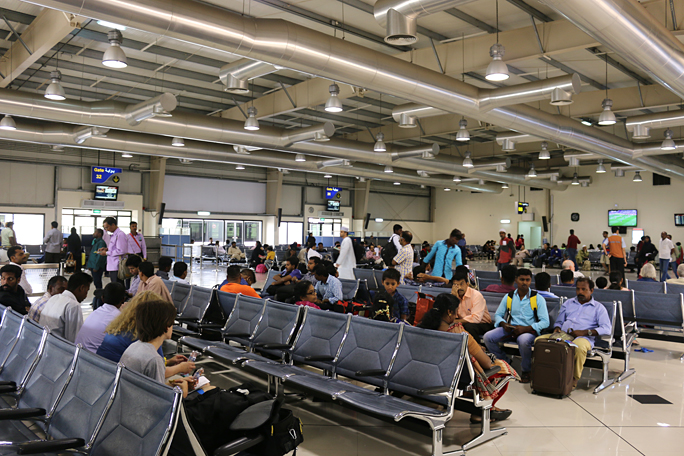
Social distancing is an oxymoronic term which is generally a defined a set of actions in controlling an infection without the use of pharmaceutical drugs, with the intention to mitigate or eliminate the spread of a contagious disease — and therefore minimize the transmission of a virus, bacteria, or germ from a possibly infected host to other people by reducing the probability of contact between them.
Examples of social distancing include maintaining a distance of six feet between people — which typically requires the cancellation or postponement of events, a temporary stoppage of mass transportation, and other mass gatherings of people — as well as isolation and quarantine.
I have been wondering what happened to the people who usually publicly accuse others of being obsessively compulsive about handling germs. Are they suddenly practicing social distancing?
My skin feels like it crawls whenever I hear or read the term social distancing.
Regardless, distancing — as I personally would rather call it — is something which I support and have practiced long before the current pandemic existed. As I wrote in this article pertaining to 5 Reasons Why I Have Not Changed Anything Despite 2019 Novel Coronavirus Pandemic, “Unless I am in a gregarious mood — which is not typical for me — I arguably pretty much invented the practice of avoiding other people whenever possible; so the recommendation of distancing myself at least six feet from other people requires no change on my part.”
2. Book With Confidence.

First used by airlines and lodging companies prior to when the 2019 Novel Coronavirus was labeled a pandemic by the World Health Organization, the term book with confidence is marketing blather meant to assure a potential customer that if a purchase is completed, the customer can freely cancel a reservation without penalty by having to pay arguably usurious fees…
…and yet, countless examples abound of airlines and lodging companies reportedly canceling the itineraries of their customers while simultaneously illegally keeping their cash of their customers and offering vouchers instead of refunds.
Book with confidence is only one of a plethora of terms used by companies which are using the current 2019 Novel Coronavirus pandemic as a marketing opportunity — especially when the chief executive officer of a company sends a message to you about how he or she cares about you and your well being; and that you are of the utmost importance to him or her.
Yeah. Right.
3. In These Uncertain Times…
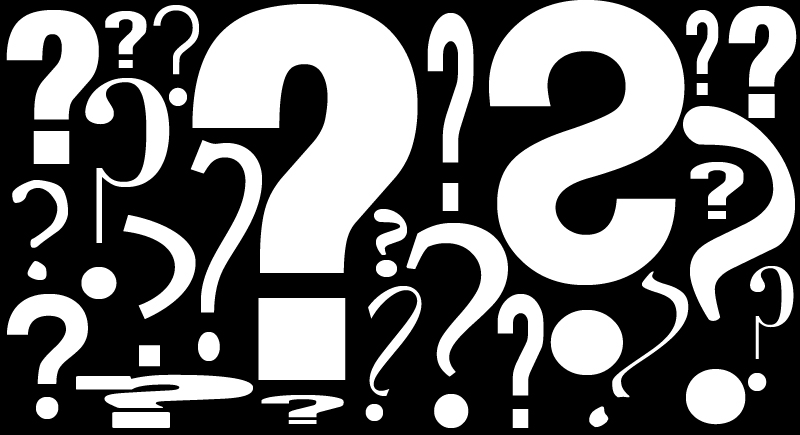
With variations such as unprecedented times or uncharted waters or challenging times, the only reason why the times we live in are uncertain should have been because of the nature of the 2019 Novel Coronavirus — but a continuous onslaught of amateurishly thoughtless decisions worldwide have exacerbated a bad situation to beyond the point of abysmal.
In other words, the 2019 Novel Coronavirus — in and of itself — is not what created these uncertain times. Politics, greed, selfishness, and other flaws of humanity — which have been exacerbated by obfuscation, fear mongering, and confusion — are what ultimately created the current environment of these uncertain times…
…and companies have been using this term to take advantage of advertising that — regardless of what happens during these uncertain times — you can count on them to be a familiar oasis in a desert of what is otherwise the absence of the usual to which we have been accustomed; and hopefully, that will be enough for you to feel comfortable in patronizing their businesses.
4. An Abundance of Caution.
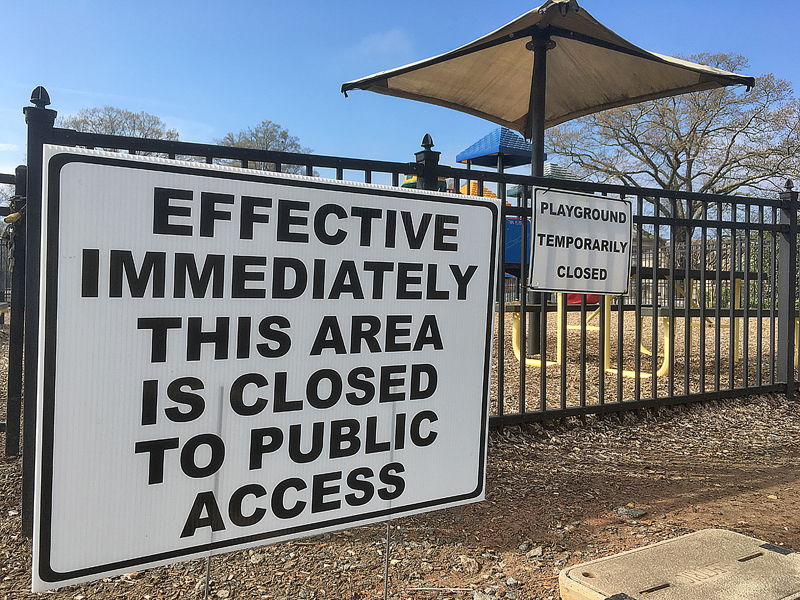
Customers are being advised that the companies which purportedly serve them and their best interests are taking an abundance of caution for their best interests; and politicians have employed a similar tact for their constituents.
What does an abundance of caution even mean? Does it mean being more cautious than necessary? Does it mean being more cautious than prudent — even if it means other things are to be adversely sacrificed?
“To consider this morass of developments is to appreciate what the phrase ‘abundance of caution’ accomplishes”, according to this article written b “It has an air of rhetorical largesse; it implies politeness and restraint instead of flailing panic. It’s a verbal lasso around galloping unpredictability. Though the scale of its terms are oxymoronic — abundance signaling plenty, caution calling for restraint — that only serves to make it sound more poetic. Imagine a kind neighbor coming over to your house and sharing their caution with you, because they had an abundance this year. An unlimited buffet with a caution fountain, caution towers, baskets of caution. As though we’re all positively relishing in our carefulness rather than preparing for the worst. There is something particularly American about turning something stark into a cornucopia.”
Companies and politicians might do well to lessen the use of the now-ubiquitous doublespeak known as an abundance of caution…
…you know…out of an abundance of caution towards its overuse.
5. Flatten the Curve.
Flatten the curve is a term used for the illustration — by using a simple graph or chart — of the ratio of reducing the number of cases of a disease to the point where the capacity of hospitals and other medical infrastructure is not overwhelmed.
The term flatten the curve may be somewhat new to the public vernacular, but not the idea behind it. Consider the diagram on page 18 of this report titled Interim Pre-pandemic Planning Guidance: Community Strategy for Pandemic Influenza Mitigation in the United States — Early, Targeted, Layered Use of Nonpharmaceutical Interventions from the Centers for Disease Control and Prevention, which was first published in February of 2007.
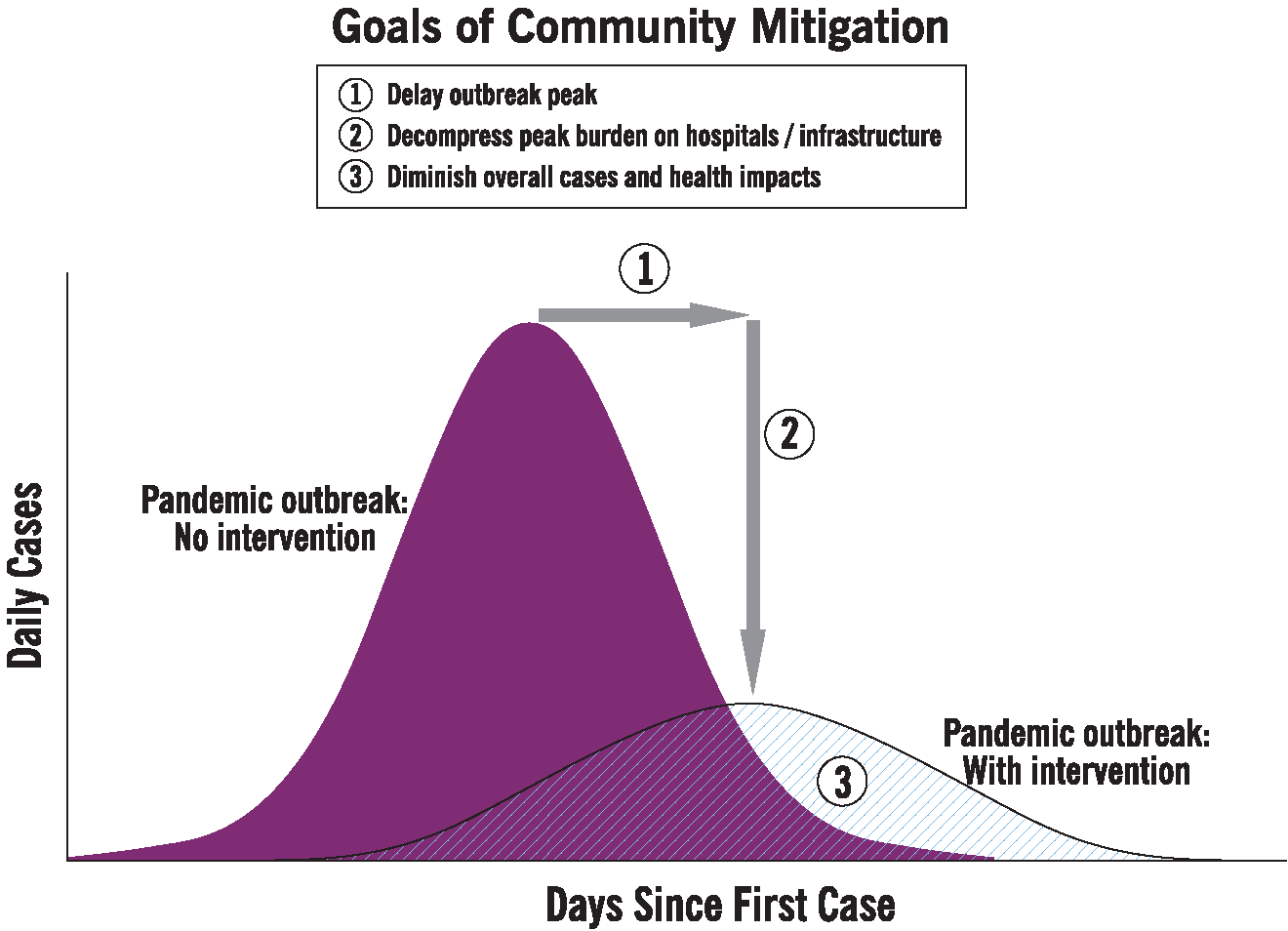
The result of goals achieved by mitigation of a pandemic by the world community, if the peak of an outbreak is delayed, the burden on hospitals and other medical infrastructure is eased, which therefore diminishes overall cases and the impacts on health.
Still, flatten the curve has become overused jargon to the point where some people might not have taken its intended purpose seriously — a backfiring of sorts — and somewhat defeat its intended purpose…
…but fortunately, many hospitals and other medical infrastructure never did reach the nightmare scenario which was predicted during a pandemic which is out of control; and numerous reports suggest that some of them have had so few cases — while simultaneously postponing elective medical procedures in preparation for an onslaught which never materialized — that a reduction of staff and services were unfortunately more realistic.
6. Essential Worker.
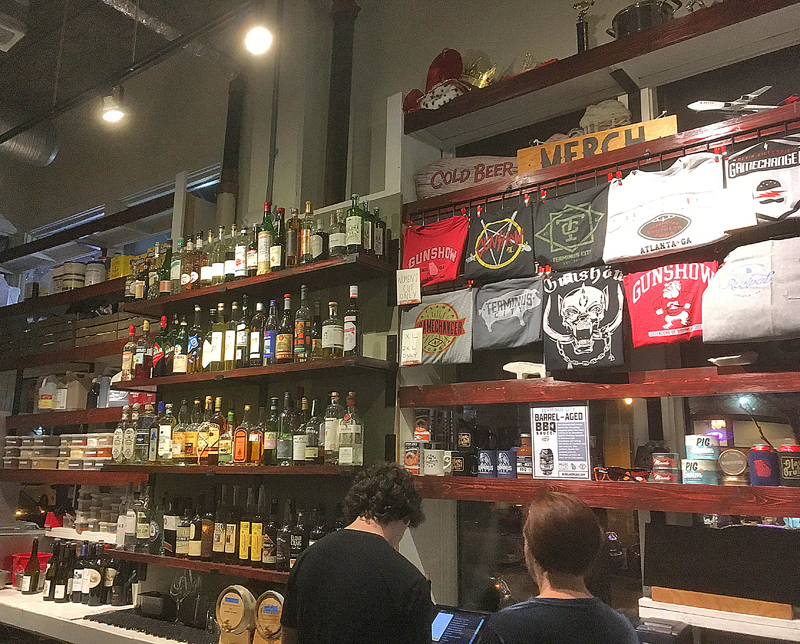
What exactly is an essential worker? That depends on who you ask and in which jurisdiction the term is defined…
…but if you use the definition of the Cybersecurity & Infrastructure Security Agency of the Department of Homeland Security of the United States, essential critical infrastructure workers include those people who work in the following industries:
- Chemical
- Commercial Facilities
- Communications
- Critical Manufacturing
- Dams
- Defense Industrial Base
- Emergency Services
- Energy
- Financial
- Food and Agriculture
- Government Facilities
- Healthcare and Public Health
- Information Technology
- Nuclear Reactors, Materials, and Waste
- Transportation Systems
- Water
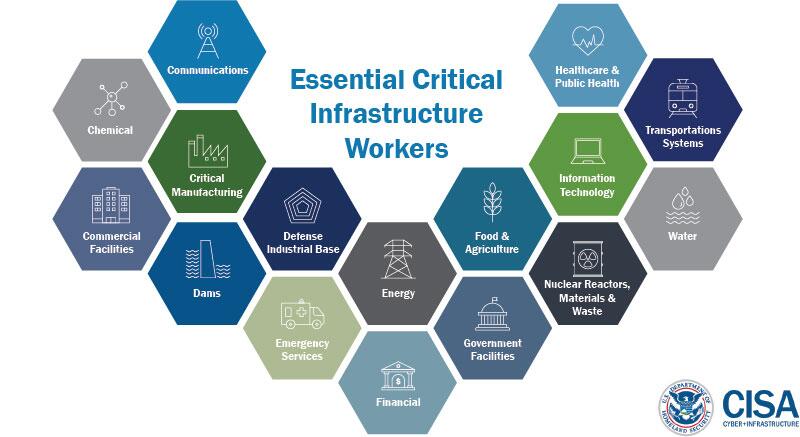
The people who work in the aforementioned industries may be the recipients of $200 billion in what is referred to as hazard pay if the second round of stimulus money from the federal government of the United States — which is called the Heroes Act is as much as three trillion dollars in aid — and passes all of its hurdles.
So who are not considered essential workers? Actors? Hairstylists? Artists?
7. First Responder and Healthcare Hero.
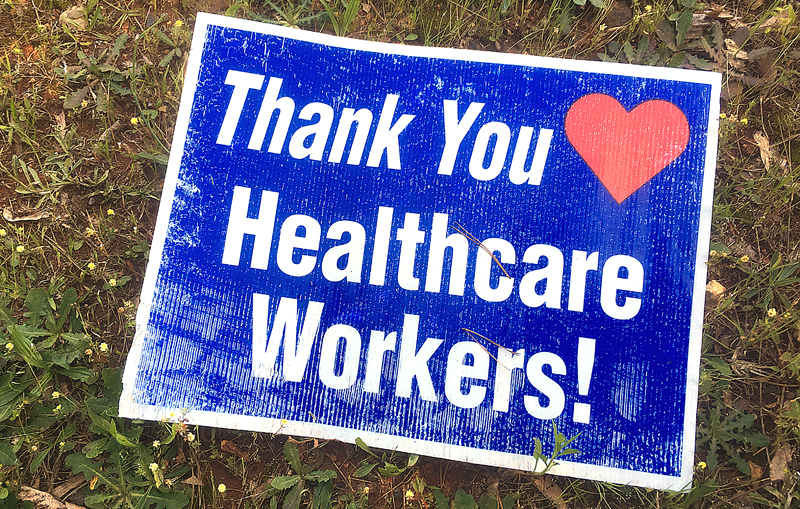
Speaking of essential workers, are doctors, nurses, and other medical professionals — and for that matter, employees working in restaurants, grocery stores, and other retail businesses — really considered “heroes”?
The official definition of a hero — according to the Oxford Dictionary — is “a person who is admired for their courage, outstanding achievements, or noble qualities.”
Has the word hero become overused?
When I asked in this article the question as to whether you would give up your premium class seat aboard an airplane to a first line responder which I wrote on Friday, May 8, 2020, every reader of The Gate who responded in the Comments section at the time this article was written responded with the words “no”, “nope”, and “never”.
I asked people in person the same question; and they responded with the same answers of “Why should I consider them heroes solely based on their choice of career? They are workers who are doing their jobs.”
Despite my negative opinion of the health care system in the United States in general — which I believe needs to be overhauled — I will be the first to admit that exceptional individuals have performed above and beyond the call of duty during the current 2019 Novel Coronavirus pandemic; and they should be commended for their service…
…but does that automatically mean that all of them are heroes?
Prior to the current 2019 Novel Coronavirus pandemic, I have had a dim view of the current state of the health care system within the United States. In this article as to why health care cannot be more like travel, I wrote that I blamed four factors mostly dealing with the financial aspect — without delving into politics — which I believe is the impetus for the problems with which the medical profession is fraught:
- Expensive drugs manufactured by pharmaceutical companies, which claim that they need to recover their research and development costs
- Tuition costs at medical institutions which are skyrocketing out of control despite the state of the economy
- Health insurance companies which cite increasing treatment costs for their subscribers
- Medical personnel who are squeezed by the increasing limitations and restrictions imposed on them
8. Rapidly Changing Updates.
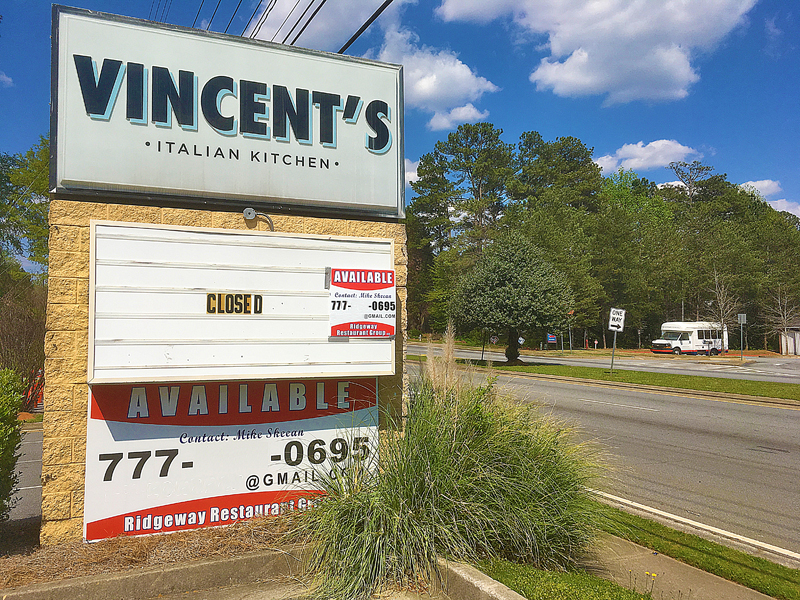
Also referred to even though a lot has changed and rapidly-changing environment, I am sure that none of us need to be reminded of the fact that things have indeed changed…
…but I suspect that the use of rapidly changing updates — or similar terminology — is a similar disclaimer to that of “just sayin’” in the northeastern United States or “bless your heart” in the southeastern United States. For example: “He is a moron. Just sayin’!” or “She is dumber than a stump, bless her heart.”
In other words, companies and other entities can do whatever they want because everything is changing so rapidly that they too can change at a moment’s notice — usually to your detriment.
Just sayin’…
9. The New Normal.
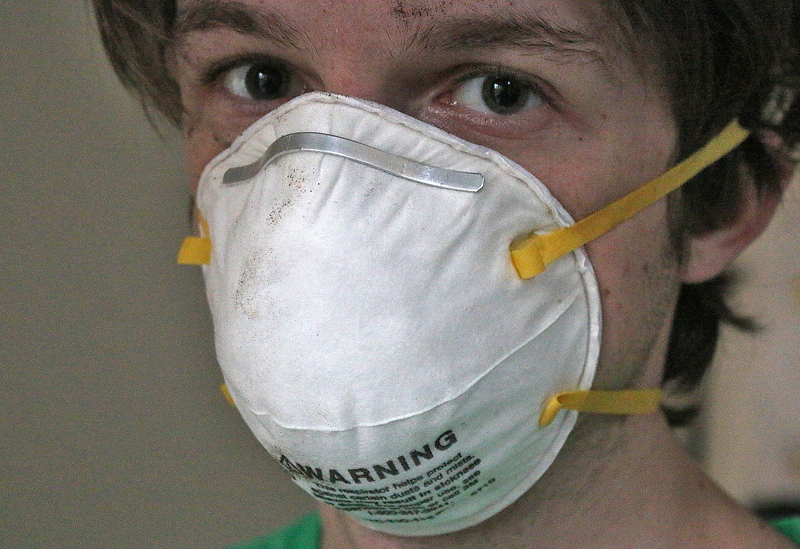
“You forgot ‘the new normal’. I don’t want a ‘new normal’. I want a normal normal.”
That is what Franci — who is a reader of The Gate — posted in the Comments section of this article which originally outlined only four overused terms of the 2019 Novel Coronavirus era; and I have heard similar sentiments from other people.
The New Normal seems to be a term which an increasing number of people despise the most, as it implies the continuation of parts of the dystopian society — through which we have been forced to adapt and live — well into the foreseeable future due to the substantial changes which have resulted from the reaction to the 2019 Novel Coronavirus.
Just remember how the aftermath of the events of Tuesday, September 11, 2001 became our “new normal” pertaining to travel with which we still remove our shoes when passing through a security checkpoint at an airport or carrying only a limited amount of liquids aboard an airplane as only two of many examples.
I can only imagine what additional inconveniences “in the name of safety” we may have to encounter as our “new normal” after the current 2019 Novel Coronavirus pandemic subsides…
10. We Are All In This Together.

I wanted to believe this. Really. I truly wanted to believe that we are all in this together.
When the attacks of Tuesday, September 11, 2001 occurred, I remember saying that if this historic event does not compel the world to unite towards a better future and to achieve goals which are important to the improvement of society in general, then we will have failed on an opportunity to ensure that the world is a better place for as many people as possible…
…and that failed colossally, in my opinion. Rudeness and incivility abound every day around the world. Politics are as prevalent as ever and seem to inhibit rather than achieve important goals — even today in the current 2019 Novel Coronavirus pandemic era. Passengers of airplanes still must carry little bags of liquids, take shoes off at airport security checkpoints, and endure other seemingly inane procedures which supposedly connote the importance of safety — but arguably are little more than what some people call security theater — and I still stand by my controversial and unpopular opinions pertaining to my aversion to trusted traveler programs which were initiated by the federal government of the United States after 2001, which I believe is an erosion of some civil liberties and freedoms while the federal government simultaneously profits.
An example that we are not all in this together is a controversy which recently surfaced in relation to the current 2019 Novel Coronavirus pandemic: the allegation that Richard Burr — who is a Republican senator representing the state of North Carolina and the chairman of the Senate Intelligence Committee of the United States — reportedly “warned a small group of well-connected constituents three weeks ago to prepare for dire economic and societal effects of the coronavirus”, according to this article written by Tim Mak for National Public Radio, which is more popularly known as NPR; and yet Burr purportedly used that information to commit insider trading by selling $1.6 million in stock prior to the substantial decline in the value of the stock market.
Did Richard Burr profit on the information about which he knew without immediately alerting the public of what was forthcoming? I will leave that to Burr and the media to sort out the answer.
In a tabloid-style hit piece today, NPR knowingly and irresponsibly misrepresented a speech I gave last month about the coronavirus threat.
Let me set the record straight. 1/
— Richard Burr (@SenatorBurr) March 19, 2020
Burr denied the allegations — but he is currently under investigation for selling stock prior to the economic downturn which was caused by the 2019 Novel Coronavirus pandemic; the Federal Bureau of Investigation seized a mobile telephone which belongs to Burr from his home; and Burr has stepped aside as chairman of the Senate Intelligence Committee until this investigation is resolved.
Myriad other examples abound about how we are not all in this together — too many to cite in one article — but the sentiment of we are all in this together is nice; and I truly hope it prevails.
11. We Will Get Through This Together.
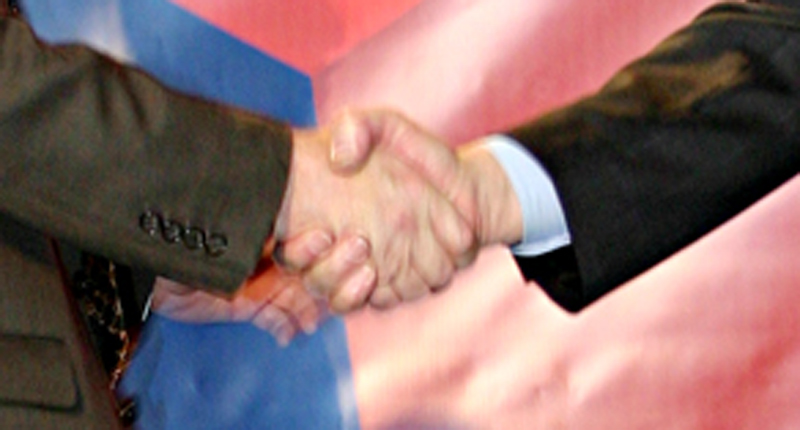
You might have seen them on lawns outside of houses, graffiti on walls, and displayed at the buildings of companies and businesses: signs adorned with messages which are designed to inspire hope and promise for the future…
…but once we do get through this together, then what? Do people revert back to every person for himself or herself?
12. We Are Here For You.
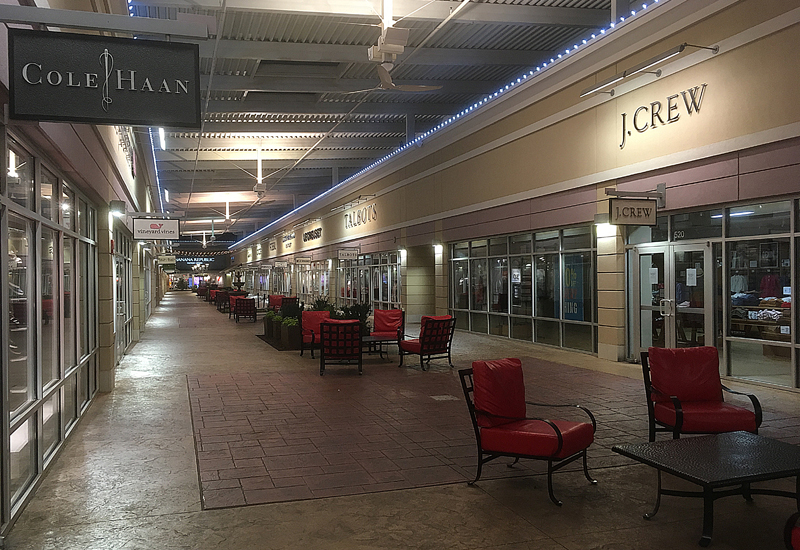
Most companies which advertise that they are here for you do not explain exactly how they are here for you. Is it because you can use their official mobile application software program on your portable electronic device to contract their services without ever having to touch anyone or anything and not have to leave your home?
Summary
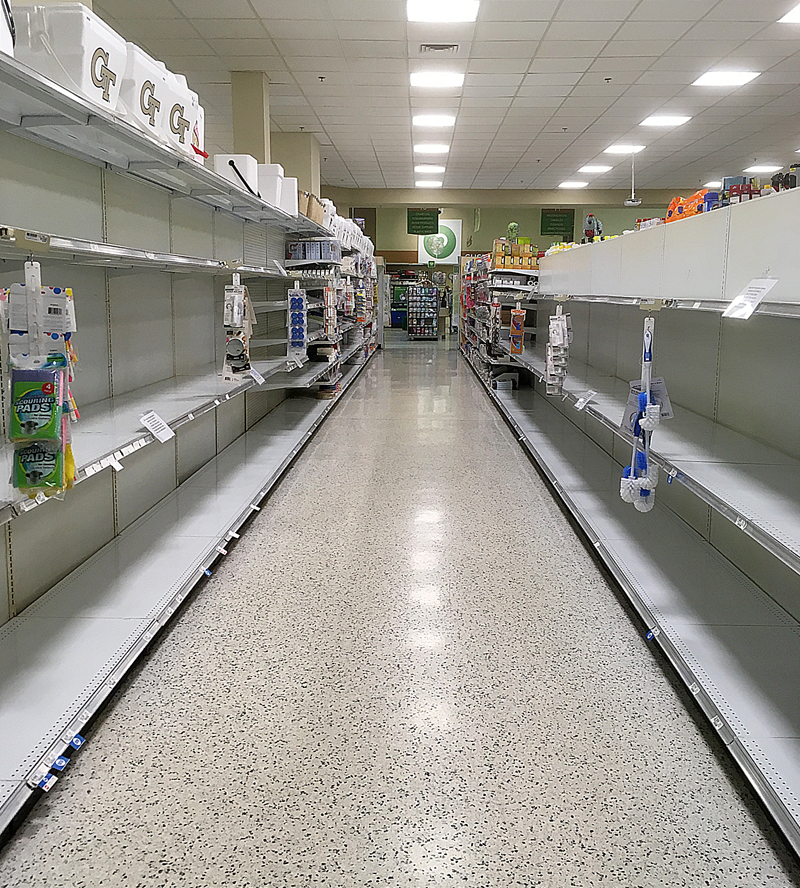
Despite my doubts, I nevertheless truly hope that when the 2019 Novel Coronavirus pandemic subsides — and it will eventually subside in some form — that we will have learned some valuable lessons to guide us as a society forward into the future…
…but in the meantime, I would like to know what mainstream terminology you believe is overused — and, perhaps, annoying — in the 2019 Novel Coronavirus pandemic era.
This article is the latest in a series pertaining to the 2019 Novel Coronavirus — which is also known as COVID-19 or 2019-nCoV or SARS-CoV-2 or HCoV-19 or severe acute respiratory syndrome coronavirus 2 — pandemic in an effort to get the facts out with information derived from reliable sources…
…as well as attempt to maintain a reasoned and sensible ongoing discussion towards how to resolve this pandemic.
Other articles at The Gate which pertain to the 2019 Novel Coronavirus include:
- One Example of Why a Pandemic is Not the Time to Lose Customers
- They Cannot Even Get Their Own Advice Straight: The Centers For Disease Control and Prevention
- Boeing 777-200 Fleet of Delta Air Lines to Be Retired By End of 2020
- …So Who Can I Trust As Sources For Articles at The Gate Anymore?
- Would George Carlin Offend Anyone Today With This Video?
- Booking.com Trademark Case Highlighted in Historic Supreme Court Session
- Sweet Tomatoes and Souplantation Restaurants Closed Permanently Because of 2019 Novel Coronavirus
- Would You Give Up Your Premium Class Seat to a First Line Responder?
- New York City Subway System No Longer Operates 24 Hours Per Day Effective As of May 6, 2020
- Hassle-Free Airlines On the Decline as Alternatives to Flying as a Passenger on Commercial Airlines
- A List of Class Action Lawsuits Against Travel Companies May 2020: 2019 Novel Coronavirus
- Update: Passengers Must Wear Face Coverings or Masks With These Airlines Based in the United States
- Delta Air Lines to Retire Its Entire McDonnell Douglas Fleet of Aircraft in June of 2020
- Passengers Must Wear Face Coverings or Masks With These Airlines Based in the United States
- Missouri, Mississippi, and Others Sue China Over 2019 Novel Coronavirus
- Examples of Hypocrisy With 2019 Novel Coronavirus?
- What Additional Symptoms May Possibly Signal 2019 Novel Coronavirus
- Should Passengers Be Required to Wear Masks Aboard Airplanes?
- Temporary Suspension of Enrollment in Most Trusted Traveler Programs Extended Due to 2019 Novel Coronavirus
- 8 Things I Will Miss About the 2019 Novel Coronavirus Pandemic
- Was Governor Really Wrong About Opening Up Georgia in Phases?
- Editorial: We Need to Stop Relying on Government to Take Care of Us
- Would Touchless Faucets and Fixtures in Public Washrooms Help Mitigate the 2019 Novel Coronavirus Pandemic?
- A Precedent Already Exists for Immunity Passports. It is Called…
- “The World Will Not and Cannot Go Back to the Way Things Were”, Warns Director-General of World Health Organization
- 3 Extra Months Free With Discounted Priority Pass Annual Membership — Save Up to 25 Percent
- IHG Rewards Club Extends Status and Points For Everyone; Flexible Reservation Policy Updates: 2019 Novel Coronavirus Pandemic
- Earth Day 2020: More Littering of Contaminated Gloves and Masks From the 2019 Novel Coronavirus
- Earth Day 2020: Should Single Use Plastics Be Eliminated at Hotels Worldwide After All? 2019 Novel Coronavirus Pandemic
- Earth Day 2020: 6 Ways to Conserve Water — Especially During a Pandemic
- One Example of the Dichotomy of We Are All In This Together: American Airlines
- How Donating Blood Has Changed During the Pandemic of 2019 Novel Coronavirus
- $8 Trillion Class Action Lawsuit Filed Against China For Covering Up 2019 Novel Coronavirus
- Airline Passengers Must Cover Mouth and Nose In Canada
- Extension Offered to Departing Visa Waiver Program Travelers by Customs and Border Protection of the United States Due to 2019 Novel Coronavirus
- Stop the Spread of Littering Contaminated Gloves and Masks, Please
- Has Shutting Down The Economy Put Children Worldwide at Greater Risk? 2019 Novel Coronavirus Pandemic
- A List of Class Action Lawsuits Against Travel Companies April 2020: 2019 Novel Coronavirus
- More Flights in the Skies Now — But Not by Airplanes
- Are We TRULY All In This Together? 2019 Novel Coronavirus Pandemic
- Protesting is a Non-Essential Activity: Unconstitutional During 2019 Novel Coronavirus Pandemic?
- Murder Allegedly Committed by Inmate Released Early Because of 2019 Novel Coronavirus
- Greater Than 117 Million Children at Risk of No Measles Vaccines Because of 2019 Novel Coronavirus Pandemic
- Ebola Virus is a Public Health Emergency of International Concern
- No 7.7 Percent Raise For Marriott Chief Executive Officer in 2020
- I Feel Bad For…
- Where Can You Find Gasoline for 89 Cents Per Gallon or Less April 11 2020 in the United States?
- Visitors Required to Complete Declaration When Traveling to This State
- 5 Ways to Prevent Yourself From Being Scammed During the 2019 Novel Coronavirus Pandemic
- Latest Travel Advisory April 7 2020 From the Department of State of the United States
- Marriott Extends Status and Points For Everyone; Flexible Reservation Policy Updates: 2019 Novel Coronavirus Pandemic
- Alaska Airlines Extends Status and Benefits For Everyone: 2019 Novel Coronavirus Pandemic
- How to Save Up to 55 Percent on Restaurant Quality Steaks — Or Possibly More — But Hurry
- 8 Reasons to Be Careful About Buying Gift Cards Right Now…
- Yes, Marriott Insiders Forum HAS Shut Down and Moved
- United Airlines Extends Status and Benefits For Everyone: 2019 Novel Coronavirus Pandemic
- Headspace Meditation and Mindfulness Trial Offer With World of Hyatt
- Where Can You Find Gasoline for 99 Cents Per Gallon or Less April 5 2020 in the United States?
- Delta Air Lines Extends Status and Benefits For Everyone: 2019 Novel Coronavirus Pandemic
- Delta Air Lines Extends Ability to Rebook Up to 2 Years on Travel Impacted by 2019 Novel Coronavirus
- Cyber Security Scam Alert Issued by the World Health Organization
- Hyatt Extends Status and Points For Everyone; Flexible Reservation Policy Updates: 2019 Novel Coronavirus Pandemic
- Return to the United States NOW or Stay Abroad Indefinitely, Department of State Warns Citizens
- Face Covering? No Face Mask? Why Seemingly Conflicting Information From Two Reliable Sources
- No New Passport Applications Accepted Except for Emergency Situations Due to 2019 Novel Coronavirus
- Airlines are Obligated to Provide Prompt Refunds to Customers: Enforcement Notice 2020 From the Department of Transportation of the United States
- Should We Shut Down the World Every Three Years? Setting a Precedent With 2019 Novel Coronavirus Pandemic
- 2019 Novel Coronavirus is Not an April Fool’s Day Joke, Unfortunately
- Why You Should NOT Skip Credit Card Payments During the Pandemic
- Are Some Room Rates Not Being Reduced Because of Discrimination?
- What is the Difference Between Cleaning, Disinfecting, and Sanitizing?
- One Way Rental Car Offers in the United States 2020 — 2019 Novel Coronavirus
- Where Can You Find Gasoline for Less Than 90 Cents Per Gallon in the United States?
- Get 10 Percent Additional Value When Exchanging for Future Travel Voucher With Qatar Airways
- What is Wrong With This Photograph? Part 34: Coronavirus Edition
- Is Sheltering in Place Ordinance Unconstitutional? Man Sues Local Government
- One Illogically Irrational Aspect of the 2019 Novel Coronavirus Pandemic is…
- Updated Policies of 23 Lodging Companies Worldwide: 2019 Novel Coronavirus Pandemic
- More States Where You Can Find Gasoline for 99 Cents Per Gallon
- Do You Miss Dining on Airline Food? This Can Help…
- Do Not Read This Article. Take a Walk Instead. If You Can.
- Hilton Extends Status and Points For Everyone; Flexible Reservation Policy Updates: 2019 Novel Coronavirus Pandemic
- 5 Reasons Why I Have Not Changed Anything Despite 2019 Novel Coronavirus
- Revealing Parts of My Body to Help With Pandemic of 2019 Novel Coronavirus
- 2 Reliable Resources of Countries With Travel Entry Restrictions Due to 2019 Novel Coronavirus
- Most Restaurants Now Offer Free Delivery. What About the Gratuity?
- Most Trusted Traveler Programs Enrollment Temporarily Suspended Due to 2019 Novel Coronavirus
- Where Can You Find Gasoline for 99 Cents Per Gallon in the United States?
- Have We Become a Society of Wimps Addicted to Drama?
- Four Overused Terms of the 2019 Novel Coronavirus Era
- Several Rental Car Companies Waive Young Adult Fees Due to 2019 Novel Coronavirus
- National Park Service Suspends All Entrance Fees Due To Coronavirus Pandemic
- Passport Services Delayed Beyond 8 Weeks; Expedited Passport Services Suspended Indefinitely
- Global Level 4 Health Advisory Issued by Department of State of the United States
- What is Wrong With This Photograph? Part 30: Coronavirus Edition
- Countries With Travel Entry Restrictions Due to 2019 Novel Coronavirus: An Updated Comprehensive List
- 2019 Novel Coronavirus: Should You Travel Within the United States?
- $250 Billion Bailout Requested by Lodging Companies
- Countries With Travel Entry Restrictions Due to 2019 Novel Coronavirus: A Comprehensive List
- $50 Billion Bailout Requested by Airlines; Trump to “Back the Airlines 100%”
- Global Level 3 Health Advisory Issued by Department of State of the United States
- All Domestic Travel Banned For Personnel of Department of Defense of the United States
- March 15 2020: Checking Back In on 2019 Novel Coronavirus — My Opinions, If Anyone Cares
- Hotel Deploys Robots to Sanitize and Disinfect Rooms
- Ireland and the United Kingdom Added to Suspension for Most Foreign Nationals For 30 Days From Europe to the United States
- Change Fee and Cancellation Fee Policies and Waivers of 46 Airlines Due To 2019 Novel Coronavirus
- Up to 12 Ounces of Hand Sanitizer is Permitted Through Airport Security Checkpoints
- I Swear, If I Receive One More Message About How My Health and Safety are Their Top Priority…
- Four Reliable Resources For Travel and the 2019 Novel Coronavirus
- Just Shut Down the Entire Planet. Problem Solved?
- Stop the Hyperbole: Travel is NOT Banned Between the United States and Europe…
- Travel From Europe to the United States Suspended for Most Foreign Nationals For 30 Days
- My Unproven Secret to Not Contracting a Virus in Years
- Pandemic of 2019 Novel Coronavirus Declared by World Health Organization
- Official Warning Issued Against Travel by Cruise Ship Due to 2019 Novel Coronavirus by the Department of State of the United States
- Now the Entire Country of Italy is Under Quarantine
- 16 Million People Quarantined in Northern Italy
- Are Masks Effective Against 2019 Novel Coronavirus That People are Stealing Them?
- As Many as 46,000 People May Have Died in the United States Alone From…
- Lodging Companies Issue Travel Waivers and Elite Status Extensions 2020 Due to 2019 Novel Coronavirus
- Update: More Airlines Suspended Change and Cancellation Fees 2020 Due To Coronavirus
- Airlines Which Suspended Change and Cancellation Fees 2020 Due To Coronavirus
- Should You Be Concerned About Coronavirus?
- Travel Alert February 2020: Italy Now Affected by 2019 Novel Coronavirus
- Travel Alert February 2020: Northern Italy Now Affected by 2019 Novel Coronavirus
- Travel Alert February 2020: South Korea Now Affected by 2019 Novel Coronavirus
- A Deal to Antarctica Because of 2019 Novel Coronavirus — But Hurry
- Update: Do Not Travel to China Due to 2019 Novel Coronavirus, Says United States Department of State
- Travel Alert January 2020: Hong Kong Now Affected by 2019 Novel Coronavirus
- Update January 2020: Additional Airlines Issue Travel Waivers for 2019 Novel Coronavirus
- Travel Alert January 2020: 2019 Novel Coronavirus Affecting Air Travel
All photographs ©2007, ©2015, ©2018, ©2019, and ©2020 by Brian Cohen.

